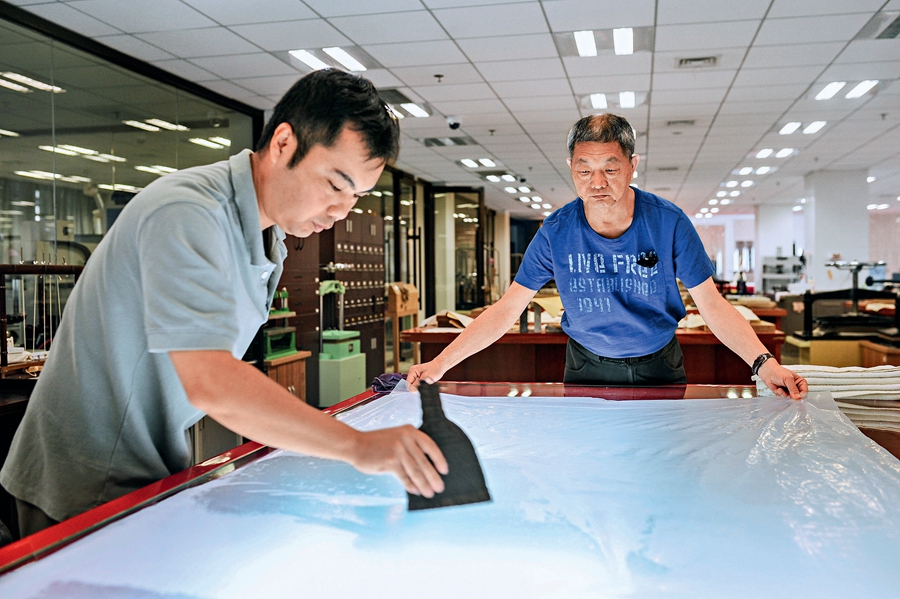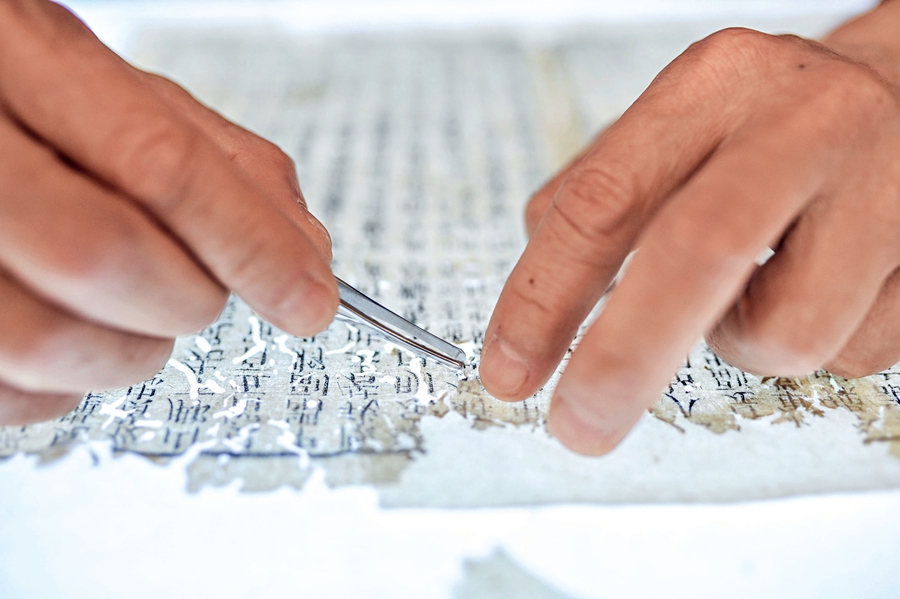Doctor of Ancient Books
China Today by Hu Yue,April 20, 2018 Adjust font size:
Solitary Guards
Even though new technology now plays an important role, the restoration of old books still remains primarily a manual profession that relies on the intelligence and skills of the workers. Du presented the three stages of restoration. First is the preparation stage, which includes checking the books’ information, analyzing what ails they have, developing a restoration plan, and after the verification of the experts group, they can then begin the restoration step. The second step is more complicated and delicate. They must remove the binding, get rid of the dust with tools such as brush and blade, sometimes clean the page using a suitable liquid, and sometimes deacidify the page. Then they have to restore the pages on a case-by-case basis: It is a long process that starts with tools such as brushes, scissors, tweezers and liquid glue. It is during this stage that one can truly appreciate the skills needed for restoration. The last step is binding: folding, cutting, flattening, perforating, wrapping, sewing and labeling.

Du Weisheng (right) is working with Hu Po, current head of the restoration group. With a chemistry major background, Hu is adept in ancient book restoration.
Du has performed this procedure for over four decades. He dedicated his life to the cause of ancient book restoration. His wife works in the same group as him. They support each other in their work.
When asked what the most impressive experience of his career was, Du answered without hesitation: “The restoration of the Dunhuang Manuscripts. Since 1991, we have restored 16,000 books. We have just finished this work, and we have kept 1,000 unrestored books for future generations to know about the original state of these books.
Du feels pride when he talks about his work on restoring books. But when he is in the office, he remains very humble with his colleagues – everyone focuses on their work. In fact, it is a lonely job. But people like Du are willing to stick with the job as they believe their efforts allow the future generations to inherit the traditional Chinese culture and history that has lasted for thousands of years.

